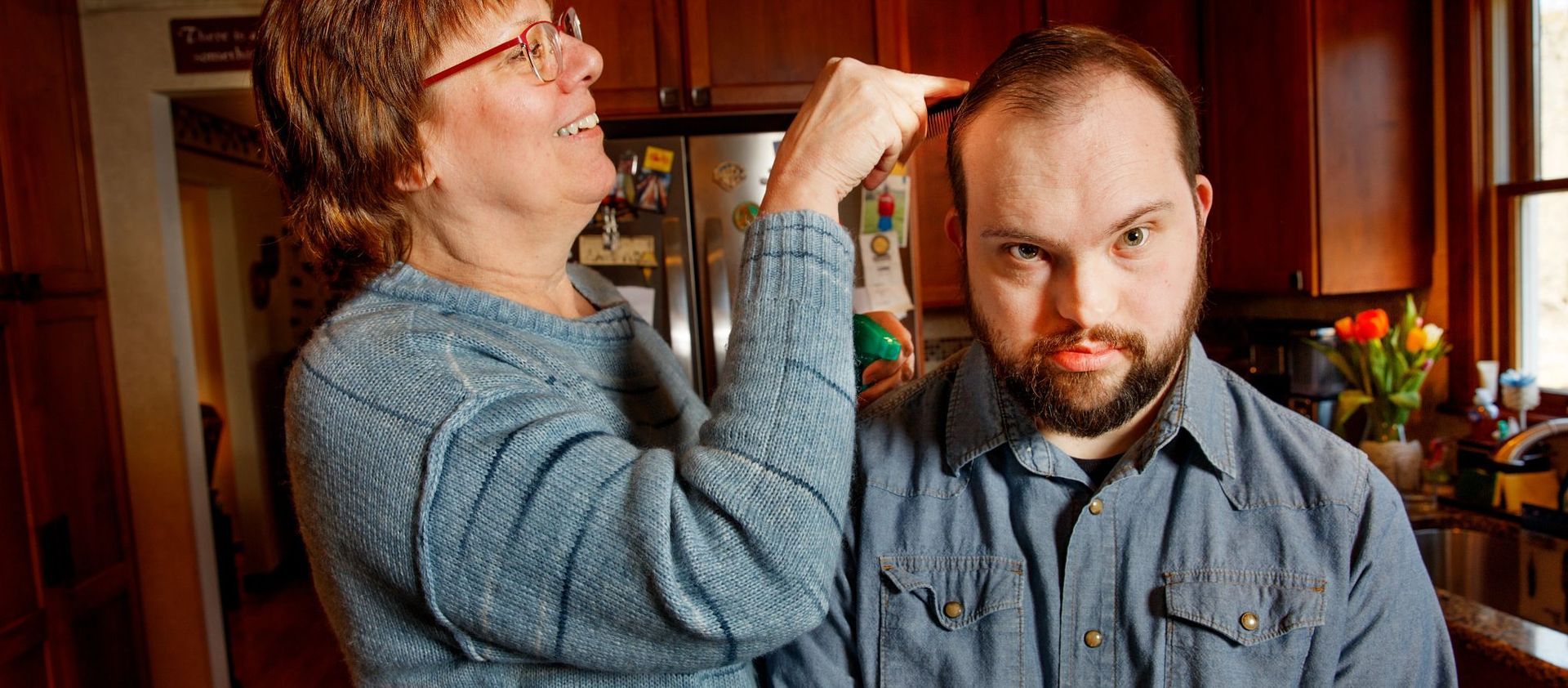Older adults have more control over their aging than they think
Psychologists are tackling negative stereotypes about aging and helping older adults embrace healthy attitudes and behaviors
For many, getting older is rewarding—adults tend to experience more well-being, life satisfaction and emotional stability as they age—and a growing body of research shows that a healthy lifestyle can slow and even reverse cognitive and physical decline. But most people still hold negative views of aging.
“Optimizing Aging: A Call for a New Narrative,” published in the May/June issue of American Psychologist, tackles that disconnect by refuting the major misconceptions about aging and outlining how psychologists can help reframe the conversation (Diehl, M., et al., American Psychologist, Vol. 75, No. 4, 2020).
“Aging is a much more plastic process than was previously thought,” says psychologist Manfred Diehl, PhD, director of the Adult Development and Aging Project at Colorado State University and lead author of the paper. “That means middle-aged and older adults have more control over the way they grow older than they believe.”
Along with his co-authors, psychologists Chandra Mehrotra, PhD, of the College of St. Scholastica in Minnesota, and Michael Smyer, PhD, of Bucknell University in Lewisburg, Pennsylvania, Diehl hopes that shifting the narrative can help adults embrace the power they have over their own aging. Not only will this improve individual lives, he says, but it can also benefit society through lower health-care costs and increased productivity if adults stay healthier for longer.
“Our society has a long-standing history of ageism,” says Katherine Ramos, PhD, an assistant professor of psychiatry and behavioral sciences at Duke University and a member of APA’s Committee on Aging, who was not involved with the paper. “What this article highlights is a call to action to change how we think and talk about growing older.”
Challenging negative stereotypes
Ageism at the societal level can lead to overt discrimination, for instance in biased hiring and termination practices. At the individual level, negative stereotypes about aging can prevent people from engaging in preventive health behaviors, which can ultimately decrease life expectancy.
Perhaps the most pervasive misconception about aging is that growing older mainly involves loss and decline. In fact, research suggests that for most mental abilities, statistically reliable age-related decline does not occur before age 60, and most adults do not experience noticeable ability declines until the late 60’s or early 70’s (Schaie, K.W., Developmental Influences on Adult Intelligence: The Seattle Longitudinal Study, 2nd ed., Oxford University Press, 2013). Moreover, emotional well-being and life satisfaction tend to improve as we get older (Carstensen, L.L., et al., Psychology and Aging, Vol. 26, No. 1, 2011).
Another widely held belief is that changes associated with aging are largely outside of our control.
“Many people think the way we grow older is genetically determined,” Diehl says. “That misconception is dangerous because it prevents many adults from taking action that could help them age in a more positive way.”
Studies show that lifestyle factors—including alcohol and tobacco use, physical activity and cognitive engagement—can account for as much as 70% of the variance in age-related memory and cognitive changes (Tucker-Drob, E.M., & Briley, D.A., Psychological Bulletin, Vol. 140, No. 4, 2014).
New evidence also suggests that older adults’ cognitive losses, as well as physical problems such as osteoporosis, can be reduced, delayed or even reversed with early intervention.
Changing the narrative
A further problem with the way we view aging—one that’s been amplified by the COVID-19 pandemic—is the tendency to describe older adults as a single homogenous group: in this case, a group that’s highly susceptible to disease and death.
“Older adults are actually the most diverse age group, but they are often seen as unilaterally frail, vulnerable or even expendable,” says Diehl. “The COVID-19 crisis is further reinforcing those existing stereotypes.”
In fact, adults who are 65 to 74 years old, 75 to 84 years old, or 85 and over face different risks. And like the rest of the United States population, older adults are diverse in race, ethnicity, socioeconomic status, immigration status, gender identity, sexual orientation, religious affiliation, and rural/urban location. Those characteristics interact in complex ways as individuals age, says Mehrotra.
“Let’s not think about older adults through this arbitrary 65-and-older category—lumping everybody together as if their experiences are the same, when we know they’re not,” Ramos says.
The new narrative on aging should reflect that diversity, say Diehl and his co-authors, and focus on challenges and opportunities rather than loss and decline.
The Gerontological Society of America’s Reframing Aging Initiative, for example, conducts research on healthy aging and offers resources to inform and engage professionals who work with older adults.
Other avenues for change include addressing ageist media portrayals of older adults, which often depict the group as a burden on society (Löckenhoff, C.E., et al., Psychology and Aging, Vol. 24, No. 4, 2009). In fact, many older adults are productive workers, frequent caregivers of grandchildren and adult children with disabilities, and active volunteers in their communities.
The authors suggest directing messages toward middle-aged adults, who can be encouraged to ramp up preventive health behaviors as they age. Workplace-based health and wellness programs are one key channel they identify for disseminating information about healthy aging to middle-aged and older adults. Other ways to spread such messages include mass media and public information campaigns.
Psychologists' role in making changes
Psychologists have already played a key role in debunking misconceptions about aging by studying behavioral and neural plasticity, socioemotional development over the life span and the negative effects of ageism. They’ve also developed theories and techniques of behavior change, such as self-regulation, that can be applied to help optimize aging.
Moving forward, the authors of “Optimizing Aging” encourage psychologists to take an increasingly active role in disseminating those findings and strategies to the public.
“In addition to publishing research papers, we should move toward translating evidence in a way that communities can understand and implement,” says Mehrotra.
Convincing people to change their behavior is a tall order, but an intervention Diehl developed shows promise. Eight weeks of education on age stereotypes, goal setting and plasticity—along with a structured exercise program—reduced negative views on aging and increased physical activity levels in adults ages 50 to 82 (Brothers, A., & Diehl, M., Journal of Aging and Physical Activity, Vol. 25, No. 3, 2017). Last year, Diehl launched a large randomized controlled trial to test a modified version of the program.
“Our biggest challenge now is to convince the person on the street that they have more control over their own behavior and aging than they know,” he says. “That’s what our field should focus on next.”
Further reading
Ageism and COVID-19
APA, 2020
Older Adults’ Health and Age-Related Changes: Reality Versus Myth
APA, 2017
Aging in Times of the COVID-19 Pandemic: Avoiding Ageism and Fostering Intergenerational Solidarity
Ayalon, L., et al., The Journals of Gerontology: Series B, 2020
Aging and Diversity: An Active Learning Experience (3rd Ed.)
Mehrotra, C., & Wagner, L., Routledge, 2018










